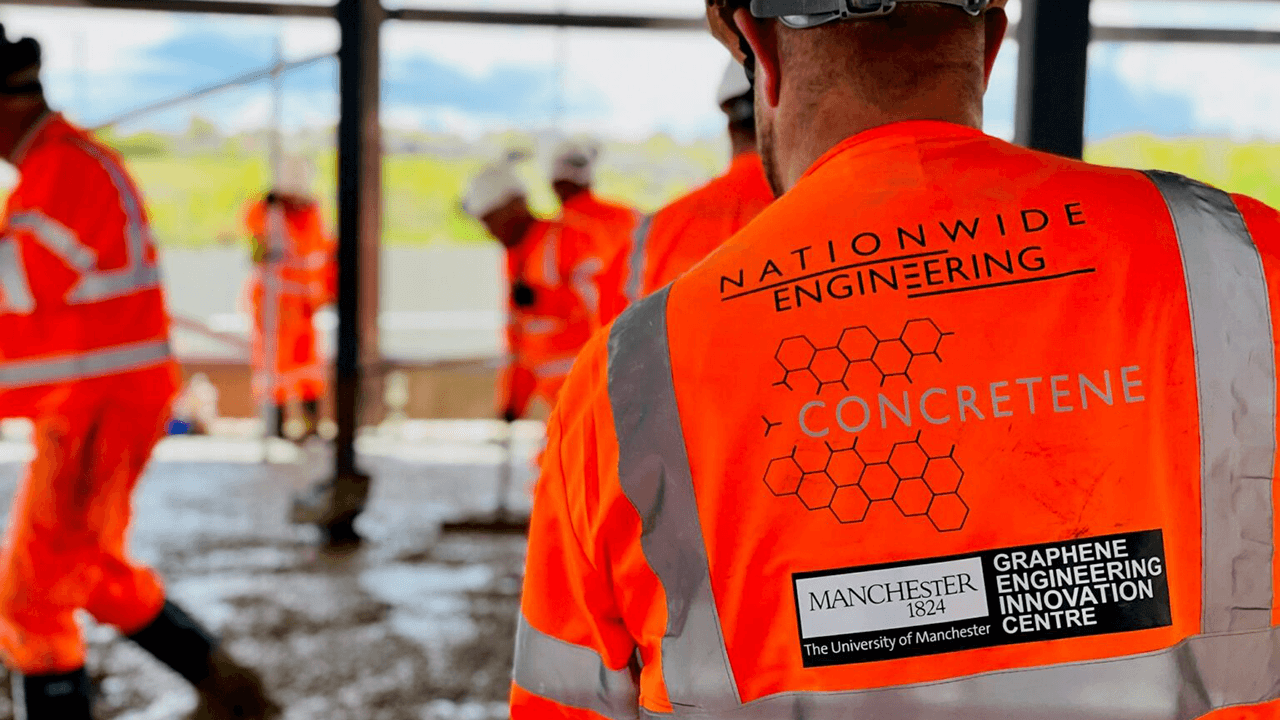LocalGlobe has led an £8 million seed investment into Concretene, a product developed by the UK’s Nationwide Engineering Research and Development (NERD) in partnership with the Graphene Engineering Innovation Centre (GEIC) at The University of Manchester that aims to do more with less through better material.
Concretene offers the promise of a more robust, more sustainable, and more cost-effective alternative to the world’s most-used building material, concrete.
Traditional concrete as we know it forms via chemical reactions known as hydration and gelation, whereby the mixture of water and cement react to form a paste that dries and hardens over time.
So far, so good, right? Well, not exactly, as the key ingredient of cement is responsible for more than 7% of global CO₂ emissions. To put that into perspective, if concrete were measured as a country, it would be the world’s third-biggest CO₂ polluter, just behind China and the US.
In contrast, Concretene includes a graphene formulation to the process, one that acts as a mechanical support and a catalyst surface for the initial hydration reaction. Ultimately, this leads to better bonding at microscopic scale and gives the finished product improved strength, durability, and corrosion resistance. Meaning, builders are able to do more with less.
According to Nationwide Engineering, Concretene deployed on real-world construction projects have shown increases in strength up to 30-50% over control batches, with subsequent lab tests reporting strength gains up to and even above 100%. Additionally, the company reports that Concretene has achieved levels of strength in as little as 24 hours which would usually be expected in 28 days when compared to traditional concrete.
Concretene has already seen its first commercial use in a mezzanine floor at Mayfield Depot, as part of the Manchester regeneration project, which, according to Mayfield officials, reduced the amount of carbon emissions of the pour by 4,265 kg, when compared to traditional concrete. National Engineering is in the process of securing partnerships with potential customers including Heathrow and Manchester Airport, Network Rail, Yorkshire Water, and the Environment Agency, and according to the company, work will soon commence on the first road trial of Concretene with National Highways.
“As professional civil engineers, we understand how the construction industry designs and uses concrete. From the outset, it was clear that Concretene had to be non-disruptive and align with existing codes and standards,” commented Concretene co-founder Rob Hibberd. “Using revolutionary nanomaterial technology, developed with our partners at the GEIC, we have been able to create a brilliant new material product that is easy for the industry to adopt. With more than 1,000 tonnes poured in real-world projects already and significant funding for the next stage of product development with our partners and stakeholders, we are looking forward to developing Concretene into a global brand.”



Would you like to write the first comment?
Login to post comments